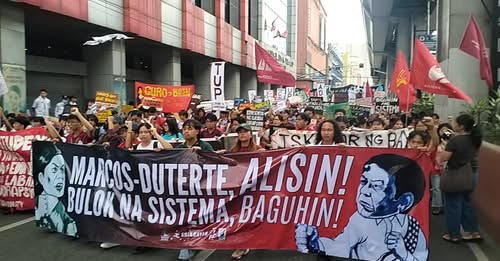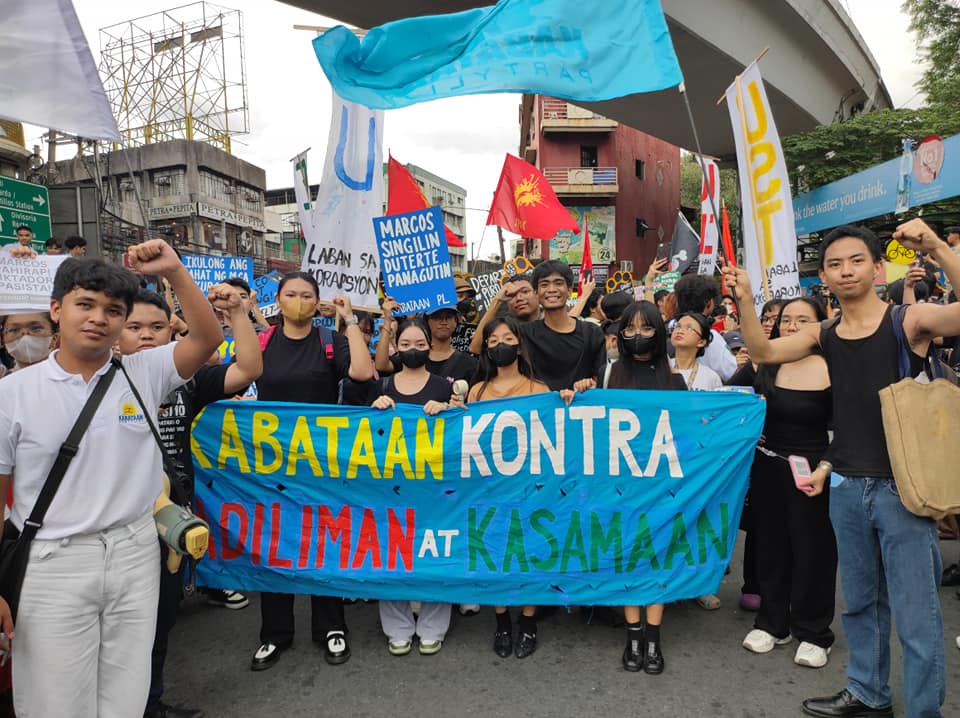Instead of working triple time to raise palay production volumes nationwide, the Department of Agriculture (DA) gifted Filipino farmers with an ugly New Year’s Day present—a multiple-year rice import deal with Pakistan that guarantees a minimum volume of 1 million metric tons (MMT) annually.
Naturally, the DA would congratulate itself for cutting such a deal with Pakistan, which has a largely non-rice-eating population, and argue that it is an agreement that stabilizes rice supply and prices. It follows the flawed logic of neoliberal economists that ample supply depresses prices. In the Philippine case, flooding the rice market with imported rice raised prices, betraying the error in the Rice Tariffication Law (RTL) that allowed traders to hoard their stocks, keep them for at least six months in many warehouses, and release their inventory when prices skyrocket.
Agriculture Secretary Francisco Tiu Laurel Jr.’s assertion that reduced tariffs have arrested potential price spikes is out of whack. Uncontrolled rice importations did not reduce rice prices but instead led to depressed palay farmgate prices and high prices in the markets. A check with Metro Manila markets shows that despite the fancy “Kadiwa,” “Rice-for-All” and “Sulit Rice” schemes, prices ranged from P42 to P55 per kilo. The recycled Marcos Sr. programs by the Marcos Jr. administration virtually have had no impact on market prices and could not be felt by consumers, the way they ignore that strange “Bagong Pilipinas” barnacle attached to government programs.
“Rather than chasing illusory benefits from import deals, the government must focus on revitalizing local rice production. This includes increasing funding for production subsidies, accelerated irrigation, and post-harvest facilities; implementing mechanisms that ensure farmers receive just compensation; restoring the National Food Authority’s role in price stabilization and procurement; and ensuring the government directly purchases palay at competitive prices to protect farmers from price manipulation by traders,” Kilusang Magbubukid ng Pilipinas (KMP) chairperson Danilo Ramos argued.
“The DA’s obsession with rice importation also disregards the long-term risks posed by climate change and global market volatility, making reliance on foreign supply inherently problematic,” Ramos stressed. Droughts have hit India, China, Vietnam and Thailand to such an extent that India, Vietnam and Thailand have reduced their export volumes. An irresponsible China, which has been tapping the headwaters of the Mekong River and diverting them to run hydropower plants in China, has reduced the water volume of the Mekong, which supplies irrigation services to Myanmar, Laos, Thailand and Vietnam. The Mekong Delta, which supplies up to 90% of the rice exported by Vietnam, has been inundated by seawater, making it impossible to meet projected production volumes. India intermittently cuts export volumes for fear of losing rice to supply the domestic market.
Ramos said the memorandum of understanding (MOU) with Pakistan represents not only poor economic policy but also a betrayal of Filipino rice farmers who do not enjoy the subsidy accorded Pakistani, Indian, Vietnamese, Thai and Chinese farmers. “For a nation where agriculture is central to the livelihood of millions, the government’s persistent neglect of local farmers is a grave injustice,” he explained. Ramos added that Pakistan’s so-called “competitive prices” come at the expense of local producers, who are being practically pushed to produce palay at a loss in what many suspect to be a grand conspiracy of landlords and the rentier class for farmers to abandon their farms and sell them to property developers, which is precisely what the land use proposal intends to legitimize.
Worse, whatever land had been distributed to farmers under agrarian reform will now be likely lost as the Marcos Jr. regime, through what economic geniuses Frederick Go and Joel Consing conceive to be huge “agricultural estates” that would lure foreign investments, with Maharlika Investment Corp. (MIC) footing the bill for power generation. This simply means that farmers and taxpayers themselves will pay for what will turn out later to be boondoggles. These “agricultural estates,” which are clones of the Dutch “cultuurstelsel” in Indonesia, compelled farmers to produce crops for the export market. It did not lead to prosperity from 1870 onwards but encouraged farmers to produce for foreign markets rather than supply the needs of the domestic market.
Rice prices remain high despite repeated attempts to manage inflation through reduced tariffs and import liberalization. Executive Order No. 62, which slashed rice import tariffs to 15%, has failed to reduce retail prices. The KMP renews its call to repeal the Rice Liberalization Law, stop any plans for additional rice imports, and implement genuine agrarian reform while safeguarding agricultural land for food production. True food security cannot be attained through imports; it requires comprehensive support for local agriculture to ensure the Philippines achieves genuine food security. Offering bogus solutions to a structural problem confronting rice farmers only prolongs the misery of practically a fourth of the Philippine population. The DA is still crazy after all these years. Instead of offering “Carol of the Bells,” the Ukrainian tune that speaks of hope and progress that the New Year brings, the DA and Marcos Jr. are instead dishing out a dirge. Tragic.




